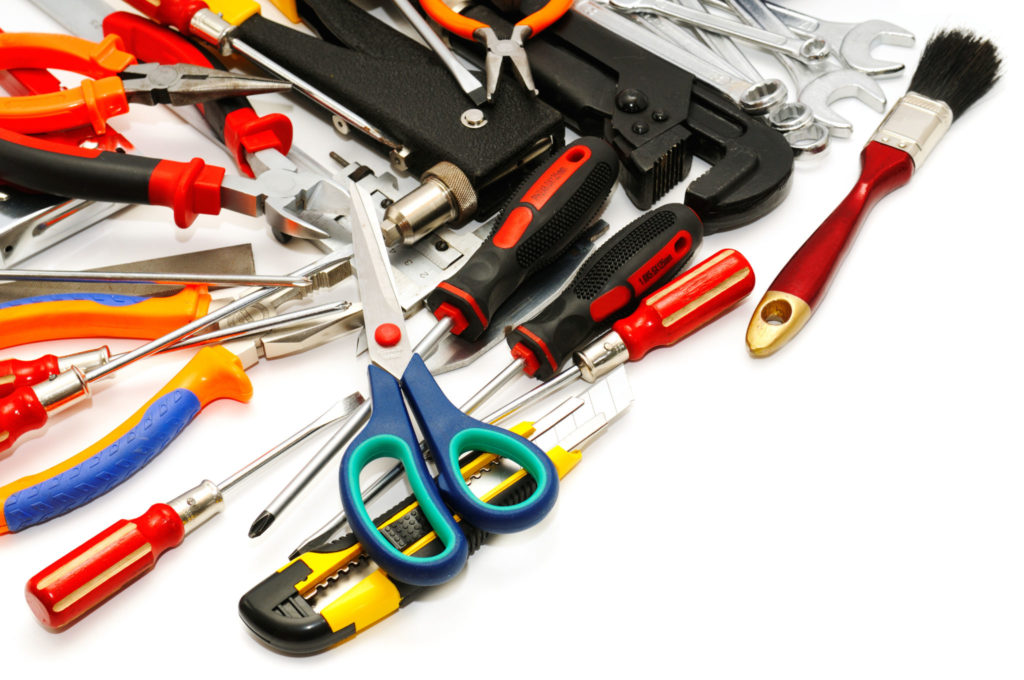Just when you think the drain on your savings couldn’t get any worse, you close on your new home, unlock the door and move in. All is right with the world.
Experienced homebuyers understand, however, that it takes living in a home for a few weeks to notice all those items that need fixing and those you simply wish to change. The last thing to want to do right now, however, is spend even more money. But, spend you must if you hope to make the home comfortable. Remember, you no longer have a landlord to call for repairs; you’ll need to either make them yourself or call a professional.
If you’re handy and you have the tools required, many routine repairs are DIY projects. If you don’t have the tools, it’s easy and inexpensive to assemble a basic tool kit and the other items you’ll need to tackle the small repairs around your new home.
The new homeowner tool kit
No, you don’t need to own every tool you’ll find in a contractor’s inventory. Even the basics will get small jobs done. Purchase a hammer, a measuring tape, both a Phillips and a standard screwdriver, adjustable wrench, utility blade and a pair of pliers.
If you have extra money, consider some power tools, such as a drill and sander.
Miscellaneous items
- A 6-foot ladder is an indispensable item for all homeowners. Many HVAC filters and smoke alarms are set high in ceilings and only a ladder will help you reach them.
- Duct tape – it’s a miracle product. Sure, people laugh about it, but there are so many uses for the stuff, from removing dust from a lamp shade to taping wires together after splicing them.
- Paintbrushes in an assortment of sizes – the small ones are handy for light touch ups so include those along with the standard-sized paintbrushes.
- Flashlights – and batteries. Every home should have more than one flashlight, not only to use in case of a power outage, but also to inspect those dark areas of the home. Don’t forget a hands-free type.
- Stud finder – you’ll get a lot of use out of this when it comes time to hang shelves.
- Level – a level will help you hang the shelves straight and it’s indispensable when hanging artwork.
Where to buy your tools to save money
Obviously the best bargains can be found at yard and garage sales and on Craigslist.org. Be careful, though, when purchasing anything other than hand tools; buying used power tools requires a bit more research. Check that the cords aren’t frayed and that all the safety features are intact and functioning. Check the battery compartment on cordless tools and pass on any that contain rust or corrosion and any that don’t come with a charger.
While they are a hot commodity at Habitat for Humanity ReStores, you may find some good bargains on used tools at these nonprofit home improvement stores and donation centers. The bonus when shopping at a ReStore is that all proceeds go back into the community.
Now that you have the tools, it’s time to learn how to do some of those upgrades and repairs. Visit The Family Handyman or Bob Vila for some affordable home improvement ideas.

